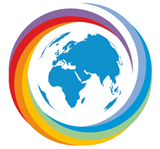The CMF has thus followed the recommendation of the Advisory Council of the International Committee of the Francophonie Games (CIJF), which placed Nice in the leading position ahead of Malabo for Equatorial Guinea and N’djamena for Chad. The capital of the Côte d’Azur made the decision thanks to the highlighted quality of its application.
Christian ESTROSI, minister responsible for Industry and mayor of Nice, is pleased with this.
“This recognition by the International Organization of the Francophonie not only confirms the international status of the city of Nice and its ability to host and organize major events, but also its desire to embody and transmit the values of the Francophonie.
By becoming the meeting place for the youth of the 70 countries that make up the Francophonie across the five continents, Nice wants to continue to build its new image, that of a young city, not only open to diversity but aiming to promote it: diversity of cultures, diversity of beliefs, with the values of tolerance, respect, and fraternity at its core.
Finally, by developing the concept of ‘Generation Francophonie’, France and Nice, with all the actors of French-speaking sport and culture, want to create a dynamic of exchanges throughout the four years preceding the Francophonie Games. Because Nice wants to leave a legacy to the country and the city that will organize the next Games. In this regard, I would like to congratulate the cities of Malabo (Equatorial Guinea) and N’djamena (Chad) for the quality of their applications, and I wish them to uphold the colors of the Francophonie at a future edition.”
Sports and arts represented for 2013
Sports: Football, athletics, basketball, wrestling, judo, table tennis, parasports (athletics).
Demonstration sport: Pétanque, a symbol of Mediterranean culture
Arts: Literature, storytelling, songs, photography, visual and fine arts, street arts, creative dances.
Demonstration arts: Digital arts, a link between traditional culture and technological innovation.
The Francophonie Games: an original and innovative concept!
Launched in 1987, at the second Francophonie summit, the Francophonie Games subtly blend arts and sports. They take place every four years in the post-Olympic year and are alternately organized in a country from the North and a country from the South. Culture, sport, solidarity, diversity, and excellence are the key words of the Francophonie Games. Different Games, where the pursuit of performance meets the universal values of the Francophonie, welcoming 3,000 athletes and artists.
The Francophonie Games have revealed big names in both sports, such as Marie-Josée Perec, Donovan Bailey, David Douillet, Hicham El Guerrouj, who are respectively World and Olympic Champions, and in culture with Mayra Curado Andrade who works today with Ismaël Lo and Césaria Evora, and Stéphane Balleu, who received the Albert Camus prize in Brussels in 2006.


